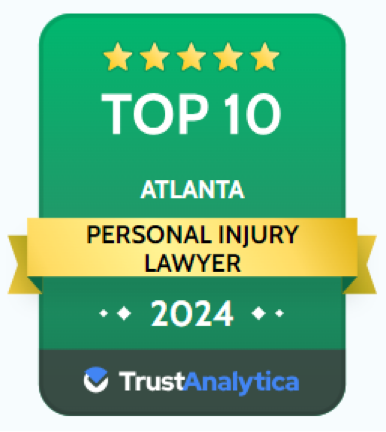All information provided about the law is very general in nature and should not be relied upon as legal advice. Every situation is different and should be analyzed by a lawyer who can provide individualized advice based on the facts involved in your unique situation, and a consideration of all of the nuances of the statutes and case law that apply at the time.
Some sort of question related to some case law in the State of Texas? – State
Intro Paragraph - Answer the Question directly in this first section - 100 to 150 Words Velit sed ullamcorper morbi tincidunt ornare massa eget egestas purus. Elementum pulvinar etiam non quam lacus suspendisse faucibus interdum. Excepteur sint occaecat cupidatat non.
Despite efforts of lawmakers, vehicle safety experts, and the media, cell phone use while driving continues to cause accidents resulting in serious injuries and preventable deaths. Even laws in many states imposing fines for texting and driving have not curbed this dangerous practice. While texting and driving does pose a significant threat to roadway safety, cell phones have evolved into portable computers that can search the web, play movies and games, and perform a multitude of other functions.
The risk of distracted driving accidents caused by the many functions of cell phones led Georgia to pass a hands-free law that became effective July 1, 2018. Although the law was designed to discourage a wide range of cell phone uses by motorists, the significant number of citations issued suggest that people continue to engage in risky and illegal cell phone activity while driving.
Growing Range of Cell Phone Distractions
Cell phones now function more like multi-function computers than portable telephones. Cell phones can be used for watching movies, surfing the internet, playing games, reading books or newspapers, and much more.
The practice of surfing the internet while driving, referred to as “webbing”, has become especially common. This activity is especially popular among teens. A study conducted by State Farm found that the practice among young motorists had expanded from 29 percent to 48 percent during a recent 3 year period. While teens are the most likely to engage in this practice, webbing amongst all age groups rose from 13 percent to 21 percent.
Georgia Passes Hands Free Law to Restrict Web Surfing and Other Risky Cell Phone Uses
Although Georgia enacted a ban on texting and driving by motorists of all ages in 2010, the law did not impose restrictions on other uses of cell phones for adult drivers. Teen drivers were banned from any cell phone use while driving. The hands-free law that became effective last summer eliminated the distinction between adult and teen drivers, so cell phone use became more limited for adults. However, teens now are allowed to use cell phones to the same extent as adults under the law.
The Hands Free Law made cell phone restrictions easier to enforce but also introduced a new distraction for teen drivers. The sponsor of the law contended that teens were using their cell phones behind the wheel, but the revised law facilitated enforcement because police did not have to try to distinguish whether a driver was 17 (i.e. teen driver) as opposed to 18 (adult driver). Any driver, regardless of age, would be subject to a citation and fine.
Has Hands Free Law Curbed Cell Phone Distractions among Drivers?
Despite the objective of easing enforcement of cell phone restrictions for drivers, law enforcement citation data suggests the law might not be effective. Citations were issued to thousands of drivers for violation of the Hands Free Law during the six months after the law went into effect. A few examples of the numbers of tickets issued during the approximately six month period after the law went into effect is provided below:
Kingsland Police Department – 55 citations
Waycross Police Department – 103 citations & 87 warnings
Glynn County Police Department – 93 citations & 66 written warnings
Brunswick Police Department – 35 citations
While the Hands Free Law might have made made it easier for law enforcement to police cell phone use by drivers, the number of violations suggests many people are still being endangered by motorists distracted by cell phones. If you are injured in a collision caused by a driver using a cell phone unlawfully, you might have a legal right to financial compensation.
How useful is this for you?
Would you like to speak with an attorney?
Call NowRelated Questions
- How Long Can Your License Be Suspended in Georgia?
- Can You Claim an Accident Without a Police Report?
- Can a Decatur, GA car accident attorney negotiate with my insurance company for me?
- What if I carry some of the blame for my car accident in Georgia?
- How long do I have to file an injury claim after a car accident in Georgia?
We Win More than Settlements.
We win the peace-of-mind you need to get your life back.
At Montlick, we believe comprehensive legal representation is a right, not a privilege. That’s why we provide our services on a contingency fee basis. You only pay when we win.








